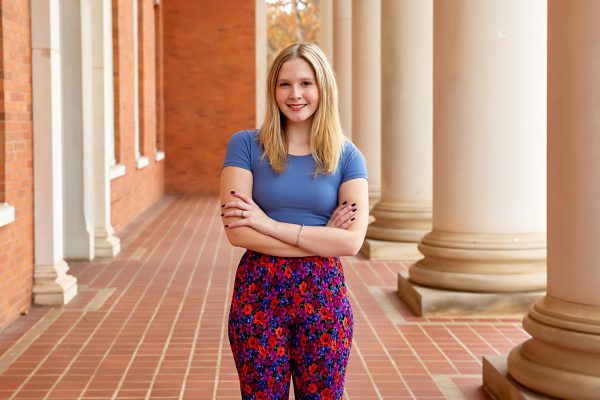Tall and dressed in simple, all-black attire, Pulitzer Prize winner Natalie Diaz’s power comes from her words and the way she carries herself more than anything else.
Clemson’s English Department was lucky enough to host Diaz on March 14 as the headliner for the University’s 17th annual literary festival. Diaz won the Pulitzer Prize for Poetry in 2021 for her collection “Postcolonial Love Poem.”
“It’s great,” Diaz told The Tiger of her Clemson experience. “I’ve been here once before. Everyone is kind. There’s a lot of talented writers and poets here. I love it.”
Diaz is a part of the Gila River Indian Community located near Phoenix, Arizona, and the influence of her indigenous heritage and sexuality is evident in her work.
Before becoming a poet, Diaz was a part of Old Dominion University’s women’s basketball team, and after college, she played professionally in Europe and Asia.
Diaz believes her background in basketball and her experience with pushing her body to the brink helped her development in poetry. “Basketball, to me, is like poetry,” she said.
In the Humanities Hall auditorium, students, faculty and visitors gathered to hear the Pulitzer Prize winner perform her work. Before her reading, Diaz was introduced by Clemson University’s writer-in-residence Desiree Bailey. Bailey told the audience that Diaz “weaves the personal, political and cultural” and that her work “transcends order.”
Diaz started her reading by thanking all the students and staff who made the festival possible. A watermelon sticker, bright against her dark ensemble, rested on her shirt, a clear message of her support for Palestine in the ongoing Israel-Hamas conflict.
Diaz spoke about how much she cares about the ongoing humanitarian conflict and told the audience, “These days, I hope my poems speak towards Palestine.”
The poems covered a variety of topics pertaining to being an indigenous woman in America. The first poem performed was “Colony,” which was centered around the missing and murdered indigenous women who have remained unaccounted for by the U.S. government.
Diaz was raised on the Fort Mojave Indian Reservation and the second poem she chose to read focused on what it was like to grow up on an indigenous reservation.
In the third poem performed by Diaz, she explained she had written it with the intention of focusing on what “American goodness” truly is and who gets to decide what is “good” in American society. The audience was moved, and you could have heard a pin drop as she read the words, “America is maps. Maps are ghosts.”
Towards the end of the reading, Diaz revealed that in her process of writing poetry, she believes that language is “prophetic” and people “arrive at it.” When writing, Diaz lets her words flow. She doesn’t focus on “getting it right.”
“Sometimes getting it ‘right’ kills the poem,” she said.
On the power of poetry, Diaz told the audience in attendance that with words, “Once you get it out, you can’t get it back. It’s like lightning. You have to be careful what you say.”










